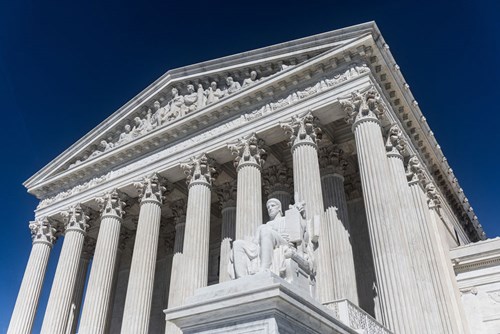Despite the Trump Administration’s attempts to kill the Affordable Care Act (ACA), the Department of Justice (DOJ) and a coalition of Republican governors and state attorneys general told the Supreme Court last week that there is no need to fast track a case that challenges the constitutionality of the health care reform act.

The DOJ wrote in a filing on Friday that it would be “premature” for the Supreme Court to expedite the case and there is no “present, real-world emergency.” The Republican coalition agreed and in a separate filing said there was no emergency to justify an expedited hearing. They asked that the Supreme Court deny a Democratic coalition’s petition to expedite the case.
UPDATE: The Supreme Court won’t fast-track ACA legal challenge before November elections
But the group of blue states that is defending the ACA said in a response that delaying the review would “prolong this litigation and the concomitant uncertainty over the future of the health care sector.” America's Health Insurance Plans also support a review and on Wednesday filed an amicus brief, stating that upending the ACA would have "profound consequences for our health care system and the hundreds of millions of people it serves. This Court should grant certiorari now to make clear that even if the individual mandate falls, the balance of the ACA will remain in force."
The crux of the case
The red states coalition filed the lawsuit (Texas v. United States) shortly after Congress implemented a tax overhaul in 2017 that eliminated the tax penalty that was part of the ACA’s individual mandate. The group argued that the law couldn’t stand without the individual mandate, which required most United States citizens and legal residents to obtain health insurance or pay a penalty.
So far two courts have agreed with the Republican’s argument. In December 2018 a federal district court judge in Texas ruled that the entire law was unconstitutional but allowed it to remain in effect while the decision was appealed. Last month the U.S. Court of Appeals for the Fifth Circuit also agreed that the individual mandate penalty was unconstitutional but kicked back the question of whether the rest of the law can stand to the lower court.
At stake is not only health coverage for millions of Americans. The law contains many provisions, including protections for people with preexisting conditions, expansion of the Medicaid program, the introduction of value-based bonus payments for the Stars program for Medicare Advantage plans, and preventive health benefits for all Medicare beneficiaries.
“The Affordable Care Act has now been in place for a decade,” the Democratic coalition said in its most recent filing. “It has transformed how health care is delivered and implemented patient protections that benefit millions of Americans. Over the course of six Congresses, every effort to repeal it has failed. It is this litigation that is creating doubts about the future of the Act, and there is every reason for this Court to review the case expeditiously.”
What's next
What happens next will depend on whether the Supreme Court grants the request for expedited consideration. If the justices agree, it’s possible that they could hear the case and decide on it before the end of their court term in June 2020, notes Katie Keith in her blog for Health Affairs.
If they deny it, the case would follow the regular schedule and would likely be heard during the court’s next term with a decision by July 2021. Keith also wrote that if the high court denies the petition, the case would go back to the district court and it could take several years before the Supreme Court reconsiders the case.

